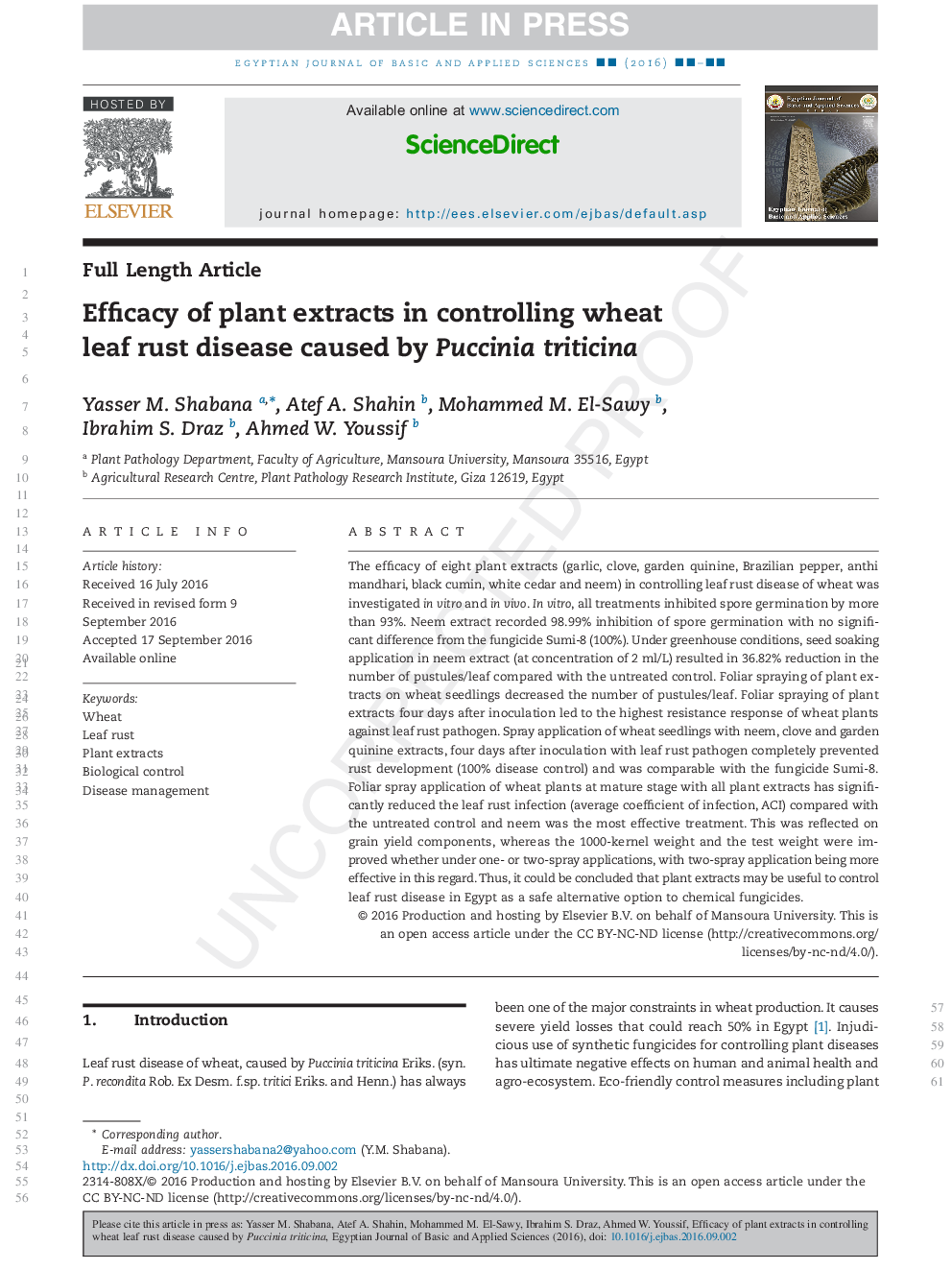| Article ID | Journal | Published Year | Pages | File Type |
|---|---|---|---|---|
| 6952406 | Egyptian Journal of Basic and Applied Sciences | 2017 | 8 Pages |
Abstract
The efficacy of eight plant extracts (garlic, clove, garden quinine, Brazilian pepper, anthi mandhaari, black cumin, white cedar and neem) in controlling leaf rust disease of wheat was investigated in vitro and in vivo. In vitro, all treatments inhibited spore germination by more than 93%. Neem extract recorded 98.99% inhibition of spore germination with no significant difference from the fungicide Sumi-8 (100%). Under greenhouse conditions, seed soaking application in neem extract (at concentration of 2Â ml/L) resulted in 36.82% reduction in the number of pustules/leaf compared with the untreated control. Foliar spraying of plant extracts on wheat seedlings decreased the number of pustules/leaf. Foliar spraying of plant extracts four days after inoculation led to the highest resistance response of wheat plants against leaf rust pathogen. Spray application of wheat seedlings with neem, clove and garden quinine extracts, four days after inoculation with leaf rust pathogen completely prevented rust development (100% disease control) and was comparable with the fungicide Sumi-8. Foliar spray application of wheat plants at mature stage with all plant extracts has significantly reduced the leaf rust infection (average coefficient of infection, ACI) compared with the untreated control and neem was the most effective treatment. This was reflected on grain yield components, whereas the 1000-kernel weight and the test weight were improved whether under one- or two-spray applications, with two-spray application being more effective in this regard. Thus, it could be concluded that plant extracts may be useful to control leaf rust disease in Egypt as a safe alternative option to chemical fungicides.
Related Topics
Physical Sciences and Engineering
Computer Science
Signal Processing
Authors
Yasser M. Shabana, Mohamed E. Abdalla, Atef A. Shahin, Mohammed M. El-Sawy, Ibrahim S. Draz, Ahmed W. Youssif,
